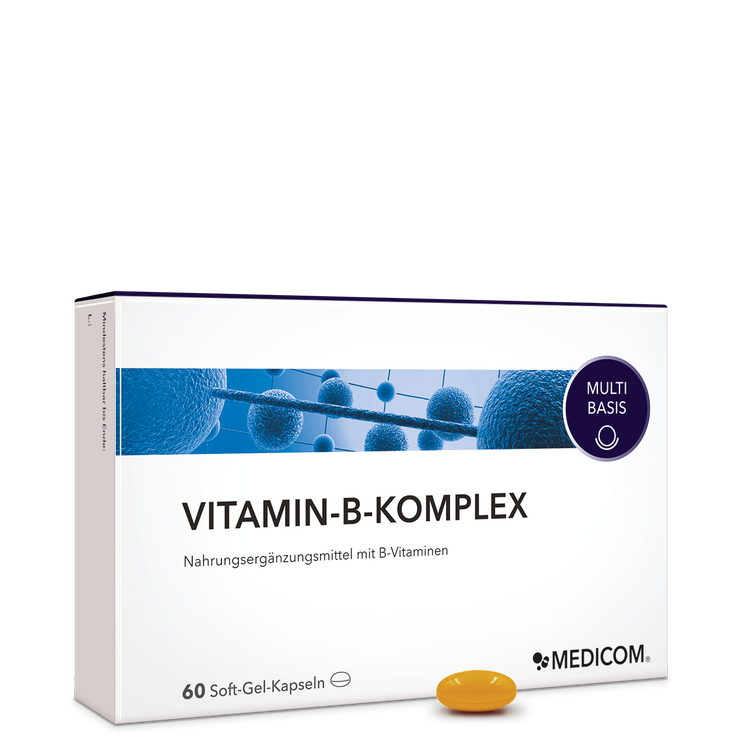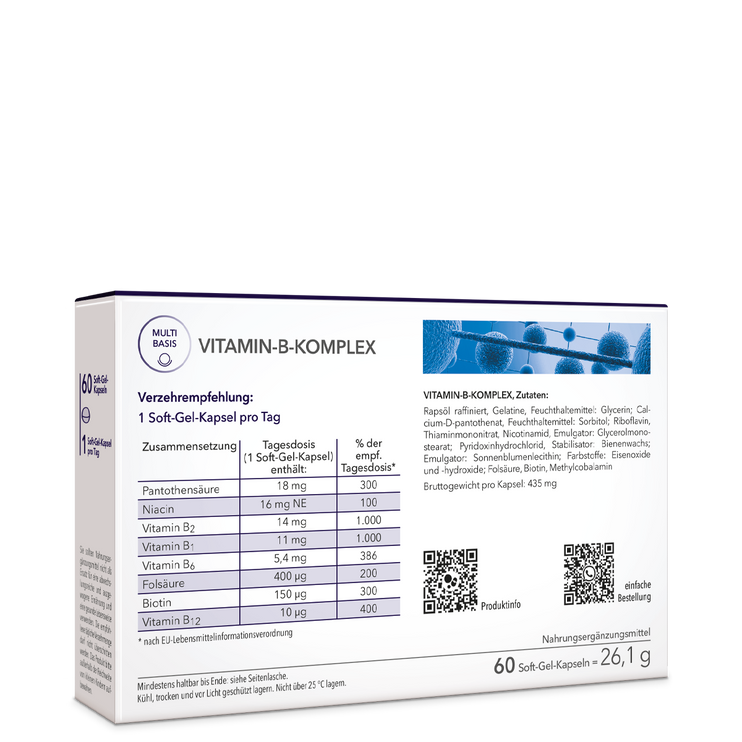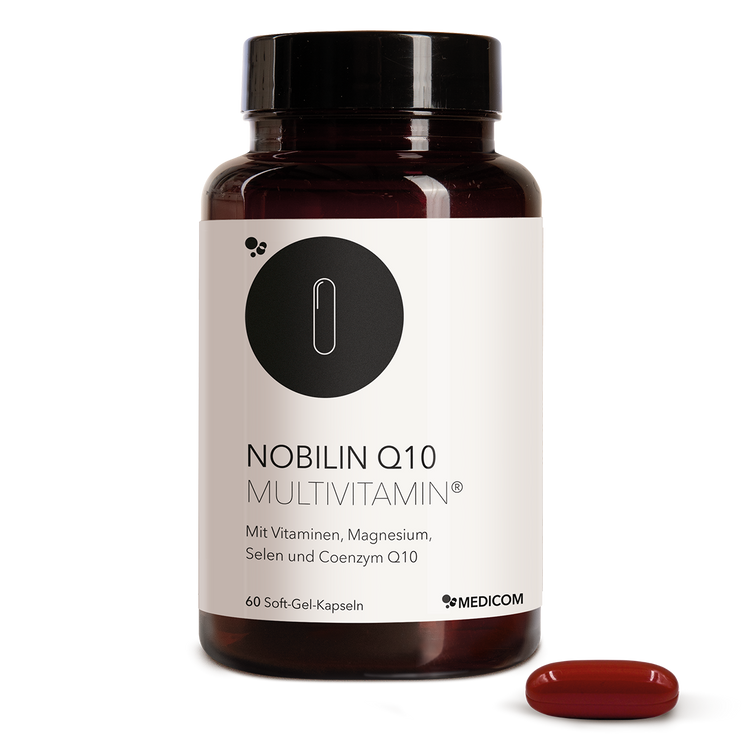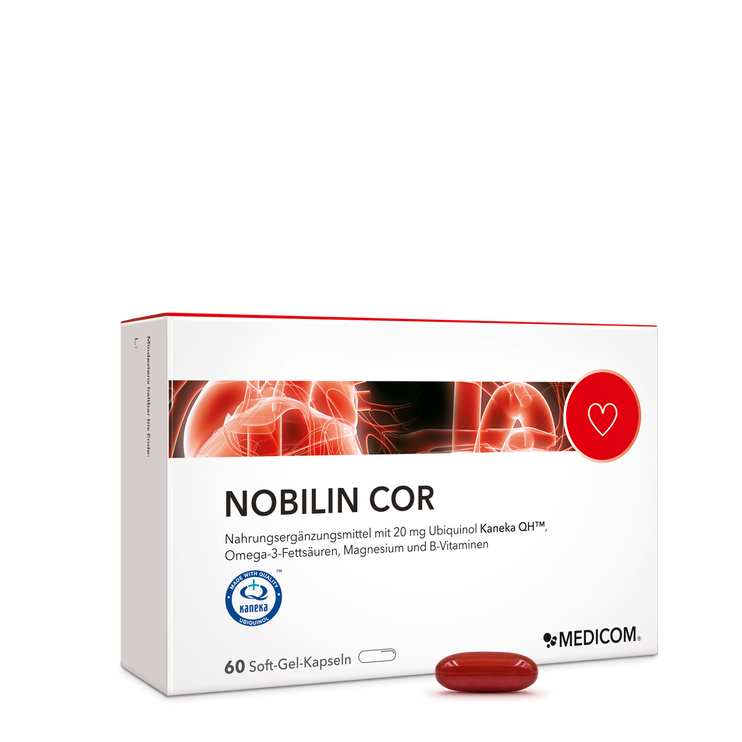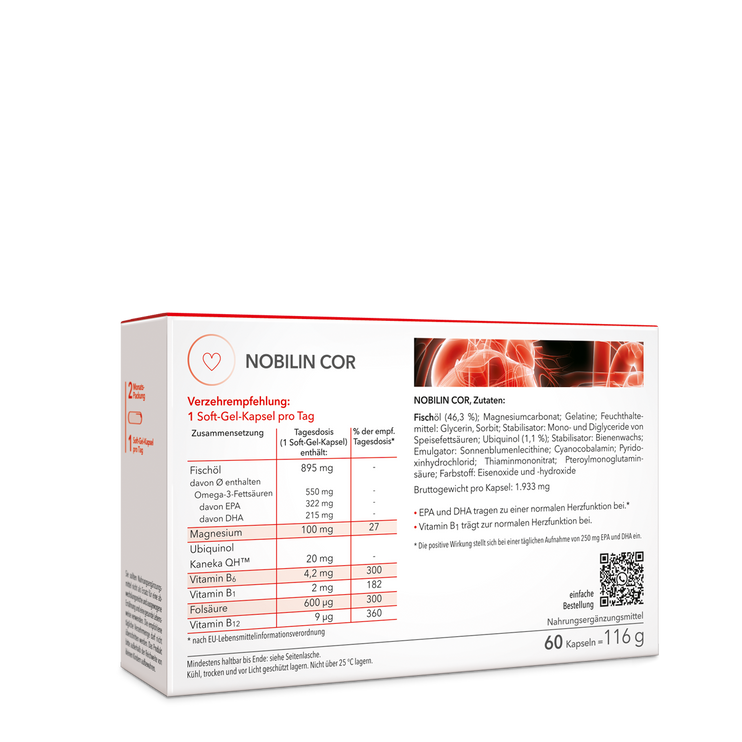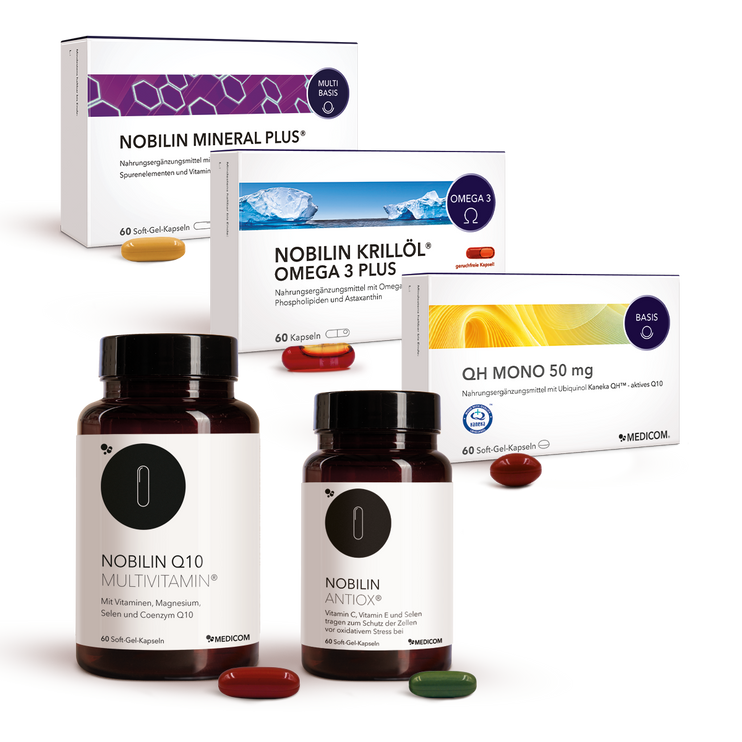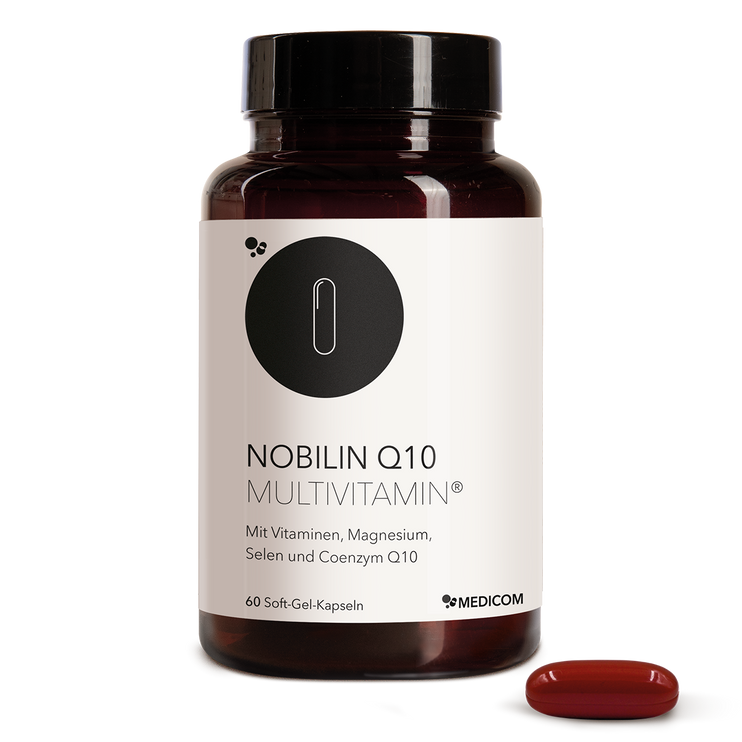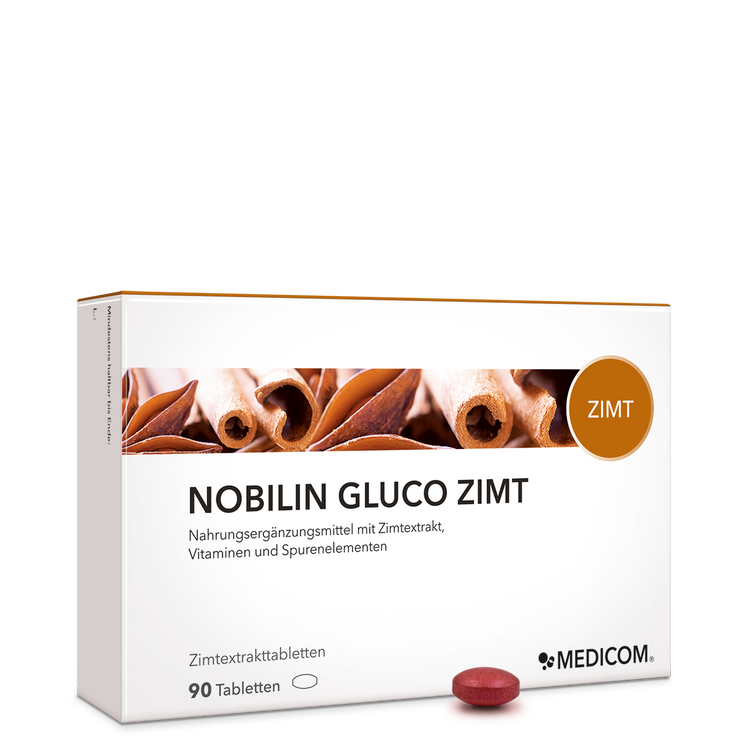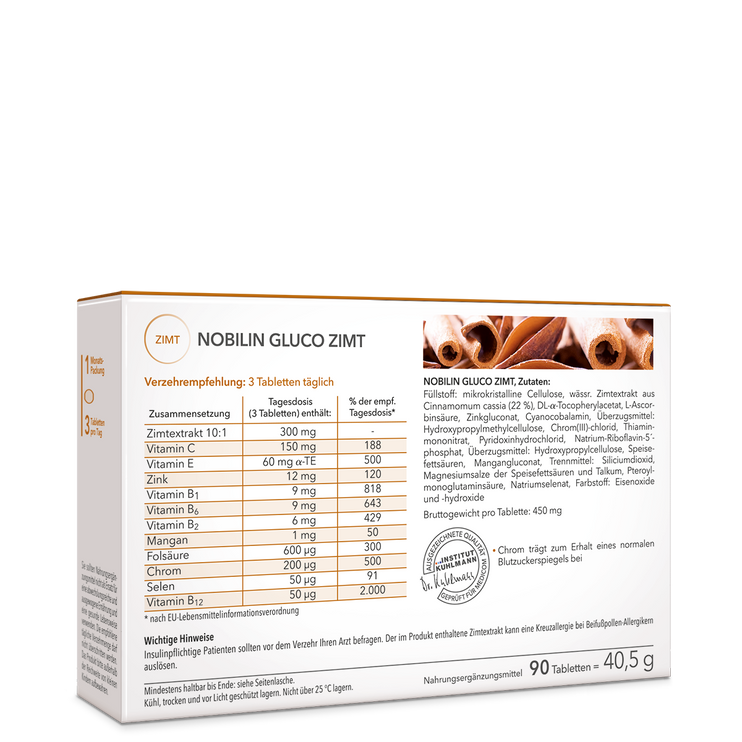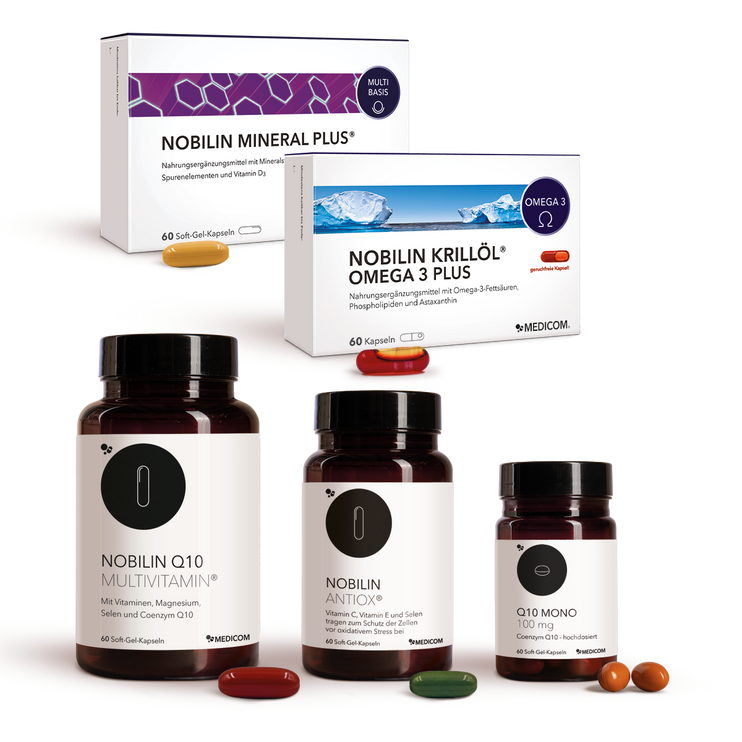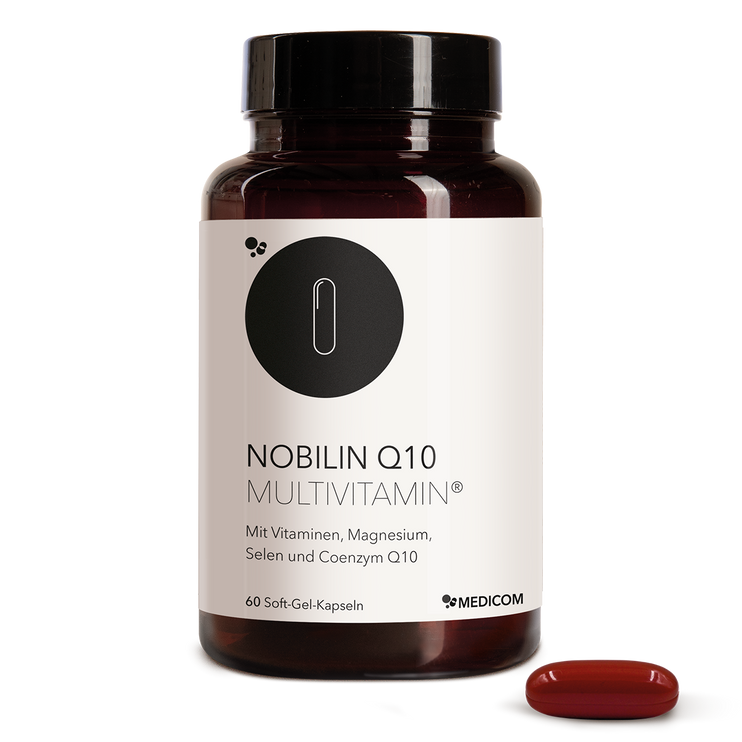The name folic acid comes from the Latin word “folium” (= leaf) and refers to the spinach leaves from which the vitamin was first extracted.Intestinal flora of the colonis able to produce a small amount of folic acid itself, but it is hardly usable by the body. Folic acidmust be ingested with foodHowever, folic acid occurs in foods in a form that is only about 50% available. Folic acid is also extremely sensitive to light, oxygen, and heat, and it is highly soluble in water.
Folic acid is important for the formation of blood and formental and physical well-beingan essential vitamin. Folic acid is also required for the transmission of genetic information.
What are the functions of folic acid?
The most important function of folic acid is its effect on cell division and cell regeneration and thus onall growth and development processesin the body. The vitamin is also important for the formation of white and red blood cells and thus for theBlood formationFolic acid deficiency therefore also leads to anemia. In conjunction with theVitamins B6andB12Folic acid breaks down the substance homocysteine into methionine. Elevated homocysteine levels in the blood are consideredRisk factor for arteriosclerosisTogether with vitamin B12 and methionine, folic acid also affects the metabolism of thenervous systemone andalso has a stabilizing effect on the mood.
Use of folic acid
An extra dose of folic acid from high-quality dietary supplements is particularly recommended in the following cases:
shortages: as a result of malnutrition, high losses during food preparation, impaired absorption due to intestinal diseases, liver diseases, alcoholism and dialysis.
Increased demand: during pregnancy and breastfeeding, when taking medication (e.g. aspirin, birth control pill).
anemia: Anemia due to folic acid deficiency.
arteriosclerosisElevated homocysteine levels in the blood are a risk factor for atherosclerosis and related diseases such as heart attack or stroke. Folic acid, in combination with vitamins B6 and B12, can convert homocysteine into methionine and break down this vascular-damaging substance. In people with elevated homocysteine levels, folic acid helps prevent atherosclerosis.
Prevention of prenatal damage: Supplementation with folic acid before fertilization and in any case during pregnancy can reduce the risk of damage to the embryo, especially malformations of the spinal cord.
Which foods contain folic acid?
Larger amounts of folic acid are found in dark green leafy vegetables, broccoli, yeast, whole grain products, avocados, egg yolks and liver.
Am I lacking folic acid?
If one of the following applies, your folic acid supply could be too low:
Are you pregnant? Are you planning to become pregnant?
Do you hardly eat vegetables?
Do you take the contraceptive pill?
Do you have an increased risk of cardiovascular disease?
